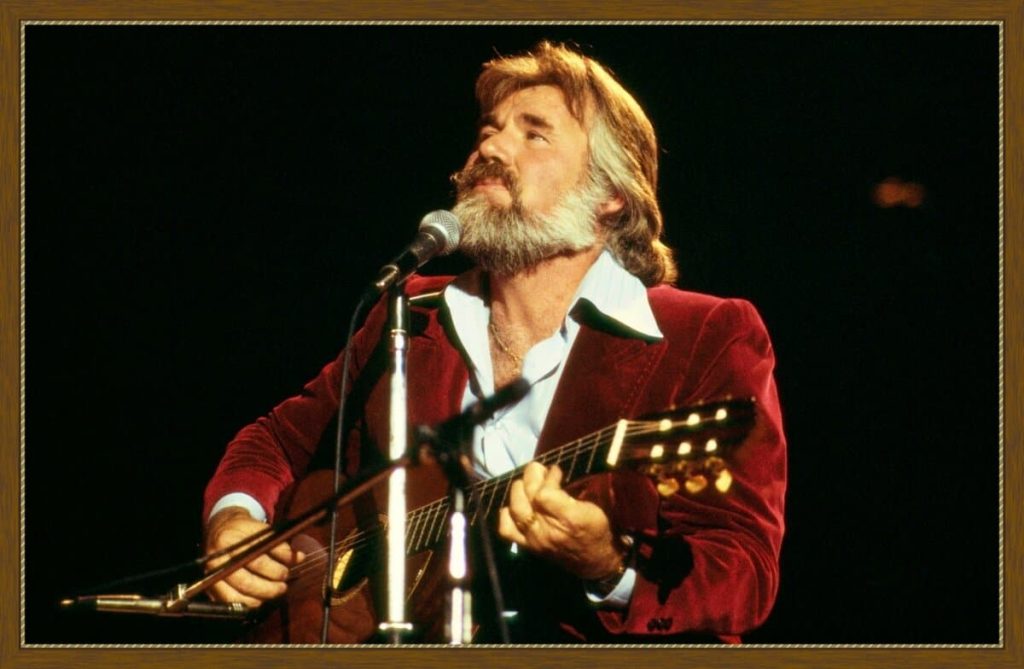
Kenny Rogers – A Story of Strength and Redemption in “Coward of the County”
Kenny Rogers’ “Coward of the County” is a powerful narrative ballad that explores themes of strength, restraint, and ultimately, the pursuit of justice. Released in 1979 on Rogers’ album Kenny, the song quickly became a hit, reaching number three on the Billboard Hot 100 and topping the country charts. Written by Roger Bowling and Billy Ed Wheeler, “Coward of the County” tells the story of Tommy, a young man nicknamed “Yellow” who is known for avoiding violence at all costs—a decision that’s rooted in his father’s dying advice. The song weaves a vivid, emotional story that captivated listeners and demonstrated Rogers’ unique storytelling prowess.
The song’s protagonist, Tommy, is raised by his father’s words, “Son, you don’t have to fight to be a man.” This mantra shapes Tommy’s character, making him a pacifist in a world that might see his avoidance of violence as cowardice. Known as the “coward of the county,” he endures the mockery of those around him, refusing to be drawn into conflict. His love for his partner, Becky, however, is where his resolve to remain passive is most evident. He lives by his father’s advice, even as others challenge his restraint.
Things take a dark turn when a group known as “The Gatlin Boys” assaults Becky in his absence. This incident shatters Tommy’s pacifist approach, forcing him to confront a situation where, in his mind, inaction no longer feels justified. Rogers delivers this turning point in a heart-stopping line: “I promised you, Dad, not to do the things you’ve done; I’ll walk away from trouble if I can. Now please don’t think I’m weak, I didn’t turn the other cheek, and Papa, I sure hope you understand.” The lyrics convey Tommy’s internal struggle as he reconciles his father’s advice with the need to defend Becky. In the end, he stands up to the Gatlin Boys, showing a strength and resilience that reveal the true measure of a man.
Rogers’ vocal delivery is a key part of what makes “Coward of the County” so impactful. His smooth, story-teller’s voice brings depth to Tommy’s emotions, from his love for Becky to his heartbreak over the trauma she endures. The combination of Rogers’ vocal warmth and the song’s poignant lyrics draws listeners into Tommy’s world, making them feel the weight of his choices. Rogers’ ability to communicate not just the narrative but the inner conflict within Tommy adds a layer of humanity and makes the song’s resolution deeply satisfying.
Musically, “Coward of the County” is straightforward, allowing the story to remain front and center. The song’s simple country melody and steady rhythm serve as the perfect backdrop, blending acoustic guitar with understated percussion that complements the song’s reflective, somber tone. The instrumentation is uncluttered, allowing Rogers’ voice to take precedence and deliver the powerful message with clarity and emotional resonance.
The song’s themes resonated deeply with audiences and sparked conversations about what it means to be a man and to stand up for one’s loved ones. In an era when “toughness” was often equated with aggression, “Coward of the County” challenged listeners to rethink what true courage looks like. It’s a song about breaking cycles of violence while still standing up against wrongdoing, making it relatable for listeners who understand the complexity of navigating life’s moral and ethical gray areas.
“Coward of the County” became one of Kenny Rogers’ signature songs, showcasing his unique ability to bring a story to life with empathy and insight. The song’s popularity led to it being adapted into a made-for-TV movie, further cementing its place in American pop culture.
Ultimately, Kenny Rogers’ “Coward of the County” remains a timeless piece that resonates across generations. With its story of love, loss, and redemption, the song speaks to the strength required to break away from expectations and to define manhood on one’s own terms. For fans of Rogers and lovers of narrative country music, “Coward of the County” is a reminder that sometimes, the greatest acts of courage come not from fighting but from knowing when to make a stand.